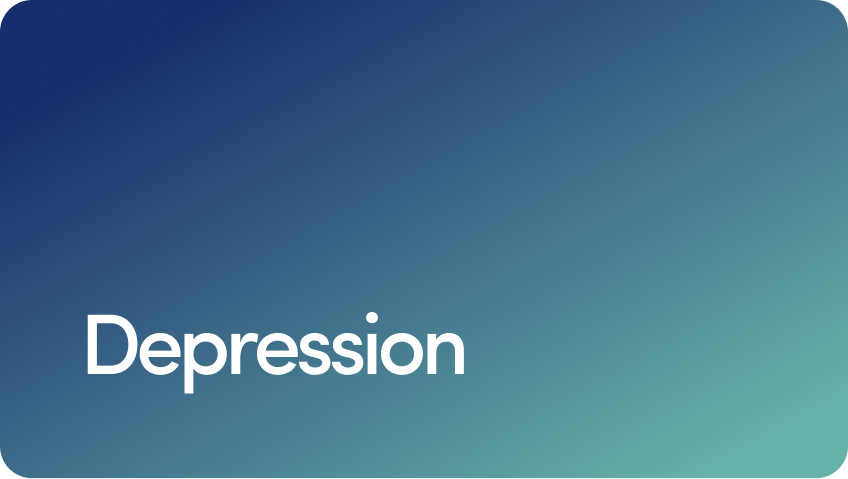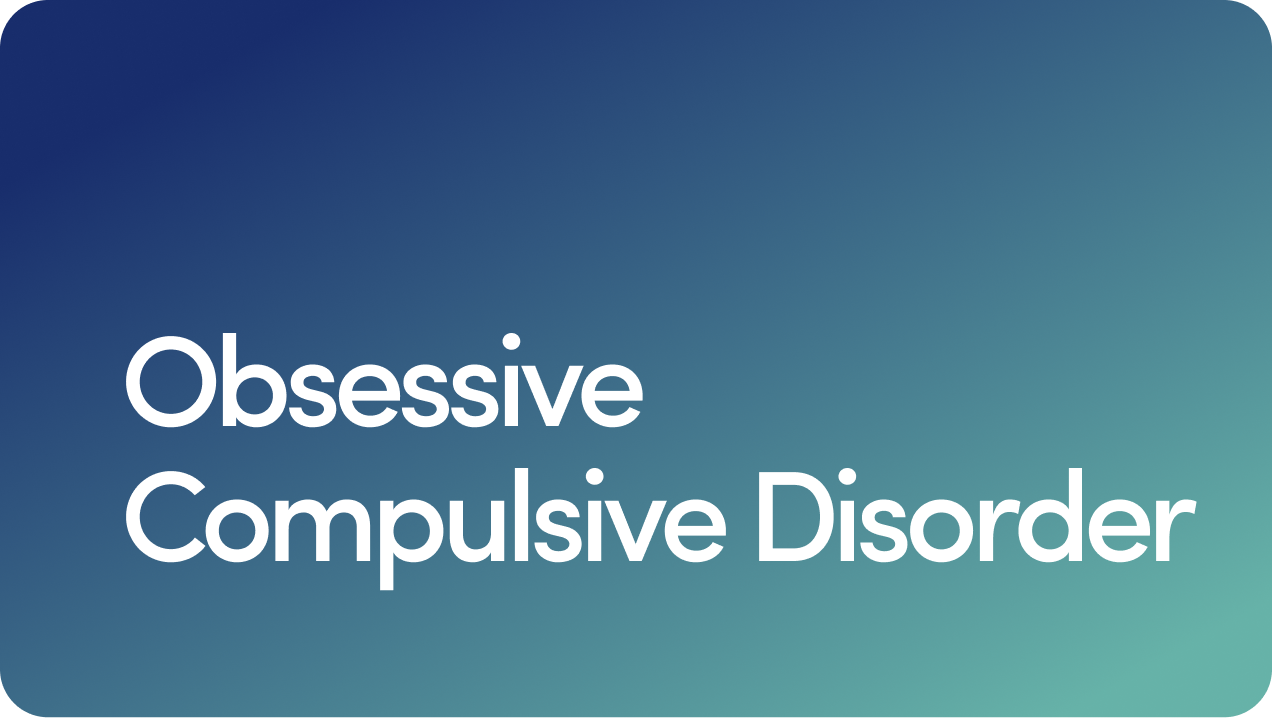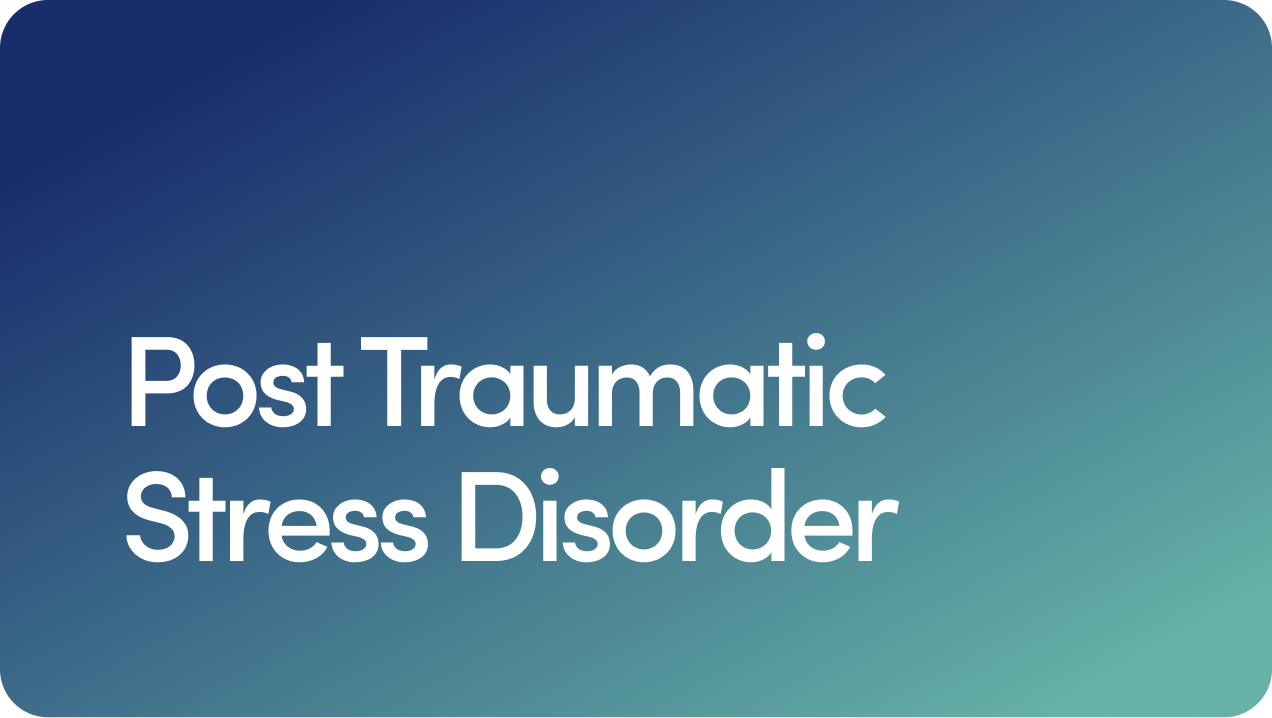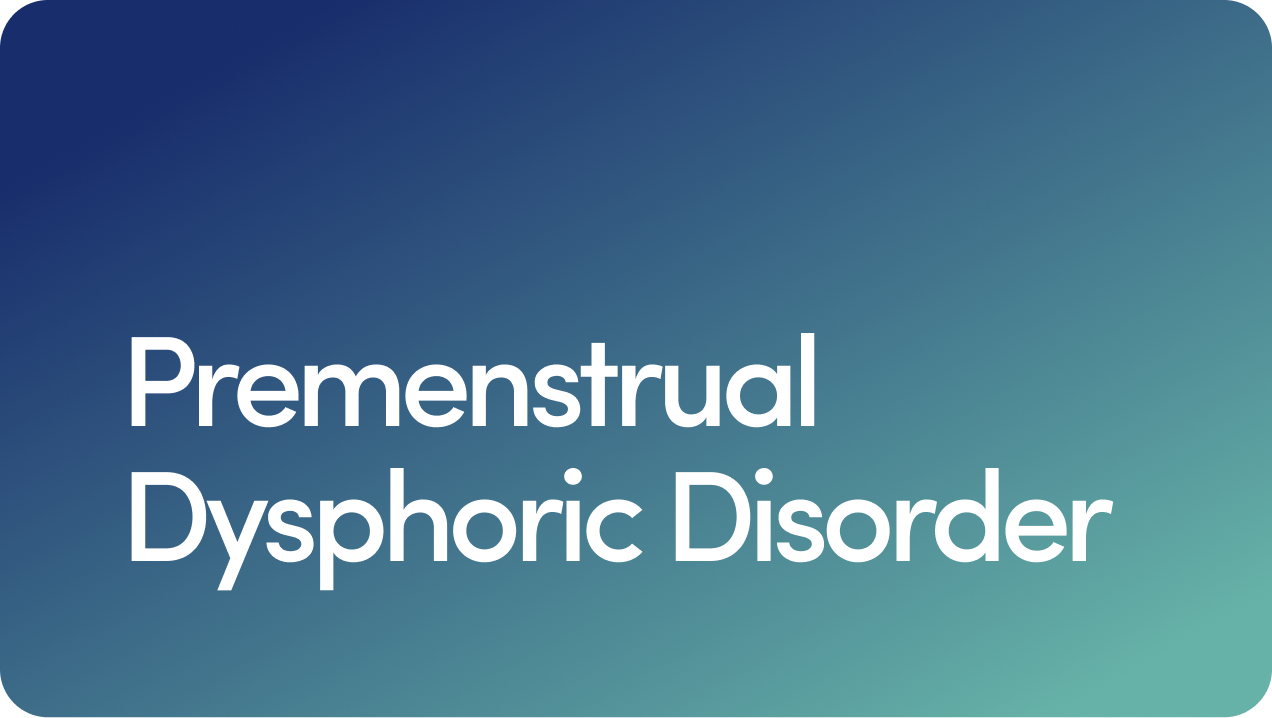Content
Free Mental Health Assessment
Why Do I Overthink Everything? And How to Stop

Reviewed by Daniel Z. Lieberman, MD
Written by Hadley Mendelsohn
Published 09/15/2022
Updated 05/08/2025
Overthinking can be draining. From the hours spent obsessing over whether a friend “seemed” upset at you to the days wasted worrying about hypothetical problems, it can sap so much time and energy.
But overthinking doesn't have to control your life.
Whether you’re tired of overthinking about overthinking or looking for strategies to reframe your internal monologue and overthink less, you’re in the right place.
We can help you learn more about the effects of overthinking, and how to not overthink as much.
But before we jump to solutions for the habit of overthinking, let’s look at the problem itself and start with a simple definition. Then, we’ll walk through possible causes and provide tips on how to manage it.
Content
What Is Overthinking?
It can be hard to describe the sensation of overthinking and feeling overwhelmed by your own thoughts — especially if it’s all you’ve ever known.
But here’s an attempt: Overthinking is a way of describing an uncontrollable series of thoughts that cause distress.
One review of literature characterized “thinking too much” as ruminative, anxious, and intrusive thoughts that can cause or contribute to distress, fatigue, hopelessness, and other symptoms of anxiety or a mood disorder like depression.
People have used many phrases and words to describe overthinking. You might have heard it called:
Spiraling
Obsessing
To a certain extent, these terms can be interchangeable. Whatever you call it, overthinking can make living in the present moment difficult.
Types of Overthinking
Overthinking can look a little different for everyone, but it often involves patterns of thought called cognitive distortions. Since “overthinking" isn't an established scientific term, it's difficult to be precise. It often refers to a cognitive process in which an individual partakes in excessive, repetitive, and often unproductive thought patterns about a particular situation or set of circumstances.
There are different types of overthinking when the experience is categorized as cognitive distortions. These can include:
Dichotomous thinking. This is when you categorize everything into extreme binaries: good or bad, black or white, with no gray area or room for ambivalence. For example, if you don’t get an A+ grade on a test, you consider it a failure. It often leads to being unnecessarily critical.
Catastrophizing. If you typically worry about worst-case scenarios, then you might be catastrophizing. For example, you have a small typo in your thank you email after a job interview and assume you’ll never find a job anywhere. Or, if one date doesn’t go as planned, you might think you’ll never find love. A colloquialism for this type of thinking is “making a mountain out of a molehill.”
Fortune telling. If you often fixate on imagining future worst-case scenarios before they happen, you could be engaging in fortune-telling.
Mind reading. This is when you try to read people’s minds and jump to conclusions about their thoughts and perceptions.
Overgeneralizing. This involves making broad assumptions about something based on one isolated situation.
Personalization. This is when you insert yourself into a narrative or assume everything is your fault. It might entail playing past experiences on a loop, dissecting every little thing you did “wrong,” and blaming yourself for “failed” outcomes that had nothing to do with you. For example, if your dog gets a bee sting while with a dog walker outside, you may blame yourself for not taking the dog yourself, even though that may not have prevented the accident.
Selective abstraction. If you tend to focus on only the negative elements of a situation and discount the positive things, you may be participating in selective abstraction.
Signs of Overthinking
Overthinking is a feature of everyday life — meaning, most of us do it. Most people who experience overthinking do not develop serious mental health conditions like depression or anxiety disorder. That said, if you’re overthinking about overthinking, some signs that may help you confirm your experience include:
Having a hard time concentrating
Being indecisive or having decision paralysis
Feeling on edge or tense
These symptoms can sometimes overlap with signs of anxiety and depression. However, it’s important to acknowledge that these symptoms of depression and other disorders are associated with — not caused by — an overthinking habit.
Why Do I Overthink Everything?
So, why do people overthink things, and what causes overthinking?
Some common reasons for overthinking are:
Perfectionism. If you put a lot of pressure on yourself to achieve “perfection” (which, reminder, doesn’t exist), you may be prone to certain cognitive distortions, like selective abstraction and dichotomous or all-or-nothing thinking.
Low self-esteem. Self-doubt and insecurities can lead to constantly second-guessing yourself, both in the present and when thinking about past actions. This can include spiraling about perceived past mistakes and questioning your ability to make good choices or solve problems.
Difficulty with relationships. People who are prone to overthinking may experience anxiety in social situations because they tend to replay conversations over and over. They worry they might have said something in an embarrassing or inappropriate way.
People who grew up with neglectful parents who didn’t make them feel loved are vulnerable to experiencing these problems, according to Daniel Z. Lieberman, MD, SVP of mental health at Hims & Hers and clinical professor of psychiatry at George Washington University. These people may lack a stable sense of being a worthwhile person whom people will naturally accept. While these are all individual reasons for overthinking, this behavior can also be a cultural response to collective distress, social upheaval or pressure, or anything else that causes people in general to worry.
If you have anxiety, you probably already know that this mental health condition can be very meta. In other words, anxious people worry about worrying. They get nervous about being nervous. And they keep themselves up late, thinking, “Why do I overthink everything?”
While thinking obsessively about something doesn’t necessarily indicate an anxiety disorder or other mental health condition, it can be a contributing factor or symptom of the illness.
And when you find yourself overthinking about anything and everything, it might also be a sign of a mental health condition, like:
Generalized anxiety disorder (GAD). This anxiety disorder is marked by uncontrollable worrying excessively about everyday things.
Depression. Some of the symptoms of depression include being withdrawn or living in your head and focusing on the negative side of things.
Panic disorder. People with panic disorder have something called “anticipatory anxiety.” Even when they’re not having symptoms, they constantly worry about the next panic attack.
Social anxiety disorder. One of the main symptoms of social anxiety is being self-conscious and worrying about other people negatively judging you. This can lead to overthinking.
Obsessive-compulsive disorder (OCD). This condition is characterized by obsessive thoughts and compulsive behaviors. People with OCD might have a fear of making mistakes or losing control over their behavior, and they also often have intrusive thoughts. Although the obsessions of OCD may seem similar to overthinking, they are in fact, very different. If you find yourself overthinking, you can often distract yourself by paying attention to something else. OCD, by contrast, is a serious mental illness. People living with this illness are generally unable to stop their obsessions without medical treatment. Overthinking does not cause OCD.
Attention-deficit/hyperactivity disorder (ADHD). ADHD can involve difficulty staying organized. People may also have trouble concentrating or get carried away by distracting thoughts. Again, it’s important to distinguish this medical illness from the ordinary experience of overthinking. Although both can result in difficulty concentrating, they are very different.
Phobias. These usually center around physical sensations like trembling, sweating, and feeling faint. But phobias can also lead to fears of dying or losing control and feelings of intense dread. Phobias are the most common form of mental illness. They’re the common cold of psychiatry, and they’re rarely treated. Most people simply avoid the object of their phobia. As a result, phobias can be less disruptive than overthinking.
If you’re feeling burdened by rumination, circular thought patterns, or mental fatigue from fears and worries, there is hope.
While there's no quick-fix trick to help you quit overthinking forever, there are plenty of things you can do to help steer yourself away from these thoughts, including:
1. Challenge Negative or Intrusive Thoughts
First, identify your recurring anxious thoughts. Once you know which thoughts aren’t serving you, you can better address them. Then, next time you catch yourself in a familiar spiral, challenge yourself to talk back to any negative thoughts.
How? Ask yourself what assumptions and beliefs are driving those thoughts, and try to reframe any negativity in a more positive light. It’s easier said than done, but it can become a powerful strategy with practice.
Another tool to stop overthinking from sucking up too much time and taking over your day? When you catch yourself ruminating, look at the clock and give yourself a deadline. Spend a few minutes trying to reframe your thoughts, and if you can't, try to shake them by exercising, changing your surroundings, or switching tasks.
2. Try Psychotherapy
As we mentioned, refocusing your thoughts on your own can be tricky. If you’re having trouble with this and overthinking is causing a great deal of distress or making it hard for you to engage in daily activities, mental health care may be your best treatment for overthinking or one of the illnesses that include overthinking as a symptom.
Whether you do online therapy or go in person, consulting a healthcare provider or mental health professional is likely the best thing you can do for your long-term well-being.
A healthcare provider may suggest one or more treatment modalities, depending on the root cause of your issue. Some types of therapy that can help with overthinking include:
Cognitive behavioral therapy (CBT) can help you become more self-aware and identify negative thought patterns that result in harmful behavior. A therapist can help you learn to challenge destructive thought patterns and retrain your brain over time.
Dialectical behavior therapy (DBT) is designed to help you learn to cope with stress in a healthy way and to regulate emotions. The goal is to become more present and strike a balance between accepting yourself and learning how to change harmful behaviors.
Acceptance and commitment therapy (ACT) helps people accept negative thoughts, emotions, or situations — even when they’re not appropriate reactions. An objective, detached perspective is encouraged. You might say, “This is something my mind is doing. That’s okay. I don’t have to identify with these thoughts. I can take a step back and just observe them. That way, they won’t overwhelm me.” In this type of therapy, you’ll learn to use mindfulness techniques, concentrate on your values, and commit to behavioral change rather than attempting to control painful feelings.
3. Consider Medication
If you’re diagnosed with an anxiety disorder that’s causing overthinking, your provider may suggest an anti-anxiety medication, either alone or in combination with talk therapy.
Currently, antidepressants are considered one of the safest and most effective treatments for anxiety. Some examples include:
Celexa® (citalopram)
Cymbalta® (duloxetine)
Lexapro® (escitalopram)
Prozac® (fluoxetine)
Zoloft® (sertraline)
Effexor® (venlafaxine)
These medications work by helping regulate the activity of neurotransmitters in your brain. For many people, this can help prevent those super low emotional lows and the extremes of anxiety and panic.
4. Practice Self-Care
Self-care can vary from person to person, but a key aspect is using coping strategies that reduce stress and promote relaxation.
Whether you practice mindfulness meditation, deep breathing, or yoga, it’s important to incorporate healthy habits into your daily life.
Other lifestyle adjustments include eating mindfully, staying hydrated, and getting plenty of exercise and sleep.
Overthinking takes up a lot of time and can damage your self-esteem and mental health. But you’re not alone. Many people struggle with overthinking, and there are ways to manage it.
Here’s what to keep in mind about overthinking and how to overcome it:
If you've been overthinking a lot, you may exhibit symptoms like difficulty focusing, indecisiveness, and feeling on edge.
Though not always a sign of a mental health condition, overthinking can be a symptom of anxiety disorders and depression.
Overthinking is treatable. While treatment for overthinking can depend on the root cause, some options include psychotherapy or medication (when the overthinking is caused by a psychiatric illness) in combination with lifestyle adjustments.
If you think your overthinking could be connected to a mental health condition, and you’re not sure where to start, consider our online psychiatry platform to connect with a healthcare provider who can give you personalized medical advice.
12 Sources
- American Psychological Association Dictionary of Psychology. (2018). Dialectical Behavior Therapy. https://dictionary.apa.org/dialectical-behavior-therapy
- Chand SU, et al. (2023). Cognitive Behavior Therapy. https://www.ncbi.nlm.nih.gov/books/NBK470241/
- Dindo LI, et al. (2017). Acceptance and Commitment Therapy: A Transdiagnostic Behavioral Intervention for Mental Health and Medical Conditions. https://www.ncbi.nlm.nih.gov/pmc/articles/PMC5509623/
- Kaiser BO, et al. (2015). "Thinking too much": A systematic review of a common idiom of distress. https://pubmed.ncbi.nlm.nih.gov/26584235/
- National Health Services. (2022). Symptoms - Phobias. https://www.nhs.uk/mental-health/conditions/phobias/symptoms/
- National Institute of Mental Health. (2024). Anxiety Disorders. https://www.nimh.nih.gov/health/topics/anxiety-disorders
- National Institute of Mental Health. (2021). Attention-Deficit/Hyperactivity Disorder in Adults: What You Need to Know. https://www.nimh.nih.gov/health/publications/adhd-what-you-need-to-know
- National Institute of Mental Health. (2024). Depression. https://www.nimh.nih.gov/health/topics/depression
- National Institute of Mental Health. (2022). Generalized Anxiety Disorder: When Worry Gets Out of Control. https://www.nimh.nih.gov/health/publications/generalized-anxiety-disorder-gad
- National Institute of Mental Health. (2023). Post-Traumatic Stress Disorder. https://www.nimh.nih.gov/health/publications/post-traumatic-stress-disorder-ptsd
- National Institute of Mental Health. (2022). Obsessive-Compulsive Disorder. https://www.nimh.nih.gov/health/topics/obsessive-compulsive-disorder-ocd
- Sheffler ZA, et al. (2023). Antidepressants. https://www.ncbi.nlm.nih.gov/books/NBK538182/
Editorial Standards
Hims & Hers has strict sourcing guidelines to ensure our content is accurate and current. We rely on peer-reviewed studies, academic research institutions, and medical associations. We strive to use primary sources and refrain from using tertiary references. See a mistake? Let us know at [email protected]!
This article is for informational purposes only and does not constitute medical advice. The information contained herein is not a substitute for and should never be relied upon for professional medical advice. Always talk to your doctor about the risks and benefits of any treatment. Learn more about our editorial standards here.
Daniel Z. Lieberman, MD
Education
Doctor of Medicine - New York University Grossman School of Medicine, 1992
Bachelor of Arts - St. John’s College, 1985
Training
Internship & Residency - New York University Grossman School of Medicine, 1996
Medical Licenses
District of Columbia, 1996
Maryland, 2022
Virginia, 2022
Board Certifications
American Board of Psychiatry and Neurology, Psychiatry, 1997
American Board of Psychiatry and Neurology, Addiction Psychiatry, 1998
Other Certificates & Certifications
Stanford Online, AI in Healthcare Specialization Certificate, 2025
Stanford Online, Machine Learning Specialization Certificate, 2024
Affiliations & Memberships
Specialties & Areas of Focus
Mental Health
Years of Experience
33
Previous Work Experience
Professor and Vice Chair - Department of Psychiatry and Behavioral Sciences, George Washington University, 1996–2022
Publications & Research
Title: A neurotransmitter approach to the trolley problem
Published in: OBM Neurobiology
Date: 2019
URL: https://www.lidsen.com/journals/neurobiology/neurobiology-03-02-030
Title: An automated internet application to help patients with bipolar disorder track social rhythm stabilization
Published in: Psychiatric Services
Date: 2011
URL: https://psychiatryonline.org/doi/10.1176/ps.62.11.pss6211_1267
Title: Enhancing adherence to mood charting with an online version of the NIMH Life Chart
Published in: Annals of General Psychiatry
Date: 2010
URL: https://annals-general-psychiatry.biomedcentral.com/articles/10.1186/1744-859X-9-S1-S11
Title: The role of gender in single versus married patients with bipolar disorder
Published in: Comprehensive Psychiatry
Date: 2010
URL: https://www.sciencedirect.com/science/article/abs/pii/S0010440X0900128X
Title: Evaluation of the stability and validity of participant samples recruited over the Internet
Published in: CyberPsychology and Behavior
Date: 2008
Title: Pathways to change: The effect of a Web application on treatment interest
Published in: The American Journal on Addictions
Date: 2008
URL: https://onlinelibrary.wiley.com/doi/10.1080/10550490802138525
Media Mentions & Features
Washington Post, Why do passengers freak out on airplanes? Science might have the answer.
Associated Press, MillerCoors Tapping Into Millenials
The Washington Post, Holiday drinking can be hard on your health, but you can take precautions
Le Figaro (France), Daniel Z. Lieberman: «La dopamine nous pousse à acheter en nous promettant le bonheur» (Daniel Z. Lieberman: “Dopamine drives us to buy by promising us happiness”)
Men’s Health (Spain), Cómo la dopamina influye en nuestro cerebro y determina nuestra vida (How dopamine influences our brain and determines our lives).
CNBC, The psychological reason it’s so hard to work today after the riot — and how to cope
Business Insider, The reason why we self-sabotage is because our brains are wired to resist the things we want most in life
U.S. News & World Report, How Your Secrets Can Damage and Maybe Even Kill You
Why I Practice Medicine
I practice medicine because I believe that mental health is the foundation of a meaningful life. When people suffer psychologically, it touches every part of their existence—from relationships to work to the simple ability to feel joy. Because it can be so difficult for people who are suffering to find good mental health care, my mission has been to expand access through technology, so that no one is left behind.
Hobbies & Interests
I like to write in my spare time. I’ve written two nonfiction titles, Spellbound: Modern Science, Ancient Magic, and the Hidden Potential of the Unconscious Mind and the international bestseller, The Molecule of More: How a Single Chemical in Your Brain Drives Love, Sex, and Creativity--and Will Determine the Fate of the Human Race
Professional Website or Profile
danielzlieberman.com
Related Articles
Related Conditions
 Anxiety
Anxiety
 Depression
Depression
 OCD
OCD
 PTSD
PTSD
 Bipolar Disorder
Bipolar Disorder
 Premenstrual Dysphoric Disorder
Premenstrual Dysphoric Disorder